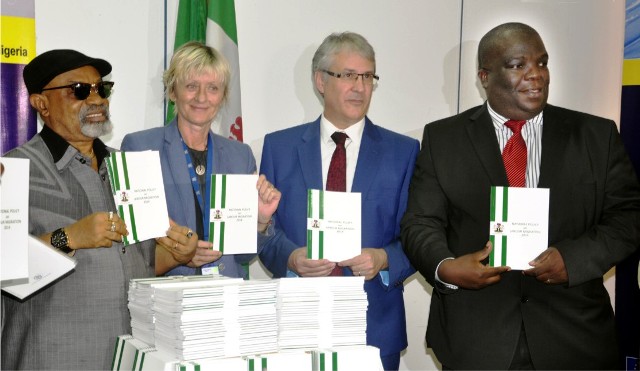Business
SMEDAN DG Urges Proactive Diversification Of Economy

The Director-General of
the Small and Medium Enterprises Development Agency (SMEDAN), Alhaji Dikko Radda, has urged the Federal Government to take proactive measures to diversify the economy.
The Tide sources reports that Radda made the call in Sokoto yesterday at the launching of the 2016 Sesame seed planting season.
Represented by Mr Abu Ozigi, SMEDAN’s Director of Engineering, Technology and Infrastructure, Radda noted that the country had paid lip service to the issue of diversification of the economy in the last few decades.
“The country is now confronted with the obvious need for a paradigm shift.
“This will pursue proactive diversification and speedily too, to make up for the lost opportunities in recent past.’’
The director-general suggested that the promotion of agro-allied businesses and other non-oil sectors was the sure way out of the current economic situation.
Radda commended a recent tripartite initiative aimed at promoting sesame seed manual and business profiles, as well as business plans.
The agreement was entered into by the Federal Ministry of Industry, Trade and Investment, the U.S. Agency for International Development (USAID), and the Federation of Agricultural Commodity Associations of Nigeria (FACAN).
Radda said the initiative served as a template to be adopted by potential investors.
“There is a tremendous potential of sesame seed production in Sokoto State and other parts of Nigeria.
“What is required is to pay the needed attention to high quality processing, adequate for local consumption and export.’’
Business
PENGASSAN Tasks Multinationals On Workers’ Salary Increase

Business
SEC Unveils Digital Regulatory Hub To Boost Oversight Across Financial Markets

Business
NAFDAC Decries Circulation Of Prohibited Food Items In markets …….Orders Vendors’ Immediate Cessation Of Dealings With Products

Importers, market traders, and supermarket operators have therefore, been directed to immediately cease all dealings in these items and to notify their supply chain partners to halt transactions involving prohibited products.
The agency emphasized that failure to comply will attract strict enforcement measures, including seizure and destruction of goods, suspension or revocation of operational licences, and prosecution under relevant laws.
The statement said “The National Agency for Food and Drug Administration and Control (NAFDAC) has raised an alarm over the growing incidence of smuggling, sale, and distribution of regulated food products such as pasta, noodles, sugar, and tomato paste currently found in markets across the country.
“These products are expressly listed on the Federal Government’s Customs Prohibition List and are not permitted for importation”.
NAFDAC also called on other government bodies, including the Nigeria Customs Service, Nigeria Immigration Service(NIS) Standards Organisation of Nigeria (SON), Nigerian Ports Authority (NPA), Nigerian Maritime Administration and Safety Agency (NIMASA), Nigeria Shippers Council, and the Nigeria Agricultural Quarantine Service (NAQS), to collaborate in enforcing the ban on these unsafe products.
-

 Politics4 days ago
Politics4 days agoWhy Reno Omokri Should Be Dropped From Ambassadorial List – Arabambi
-

 Politics3 days ago
Politics3 days agoPDP Vows Legal Action Against Rivers Lawmakers Over Defection
-

 Sports3 days ago
Sports3 days agoNigeria, Egypt friendly Hold Dec 16
-

 Sports3 days ago
Sports3 days agoNSC hails S’Eagles Captain Troost-Ekong
-

 Politics3 days ago
Politics3 days agoRIVERS PEOPLE REACT AS 17 PDP STATE LAWMAKERS MOVE TO APC
-

 Oil & Energy3 days ago
Oil & Energy3 days agoNCDMB Unveils $100m Equity Investment Scheme, Says Nigerian Content Hits 61% In 2025 ………As Board Plans Technology Challenge, Research and Development Fair In 2026
-

 Politics3 days ago
Politics3 days agoWithdraw Ambassadorial List, It Lacks Federal Character, Ndume Tells Tinubu
-

 Sports3 days ago
Sports3 days agoMakinde becomes Nigeria’s youngest Karate black belt

